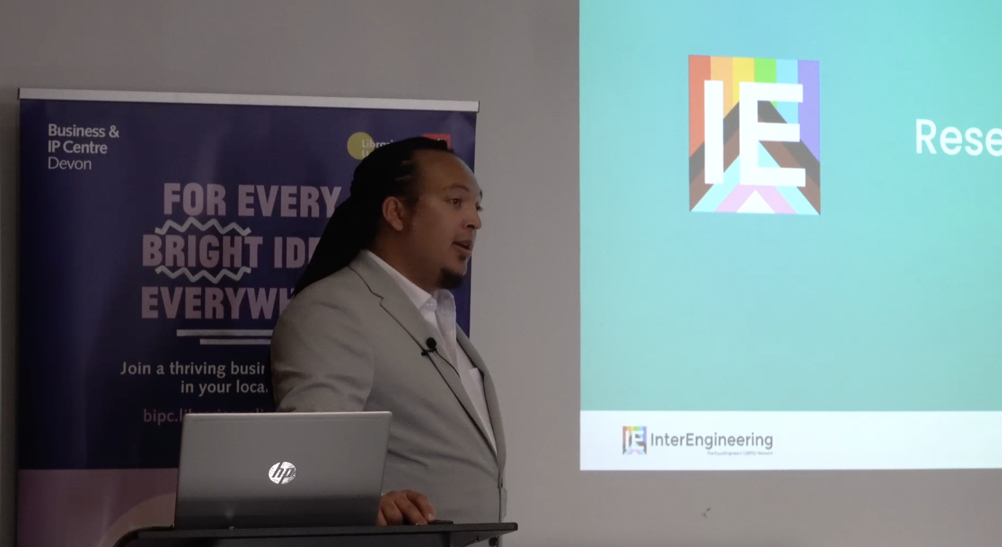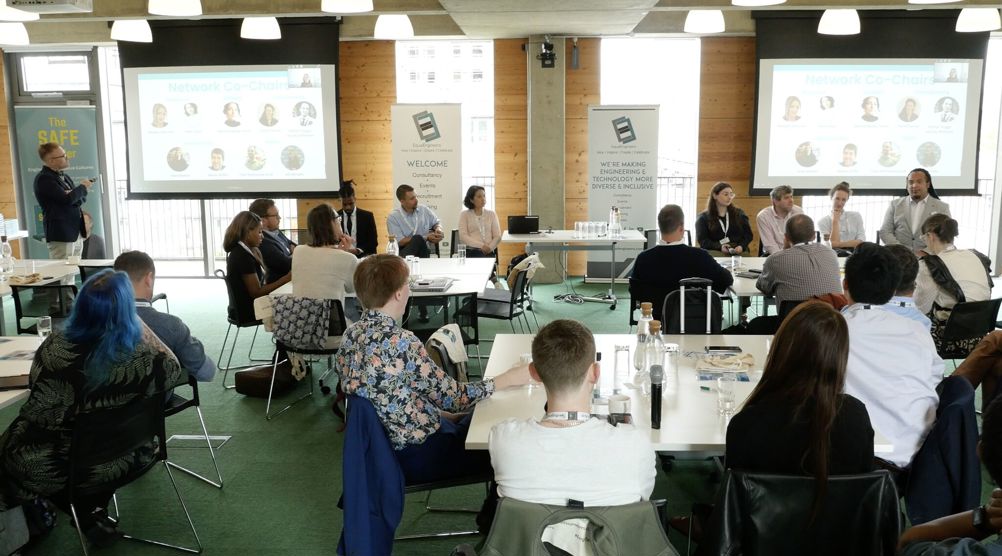Engineering is an industry known for innovation and problem-solving, but to many who work in Engineering it is also known for being historically less inclusive than other sectors, presenting significant challenges particularly for those from marginalised communities. My journey as a Queer Engineer highlights some of these challenges and the critical need for increased work on diversity, equity, and inclusion (DEI).
I am used to being an outlier. Growing up in a largely white neighbourhood in the south of Manchester, and being the Black, Queer, autistic (then undiagnosed) child made me stand out in school, in the RAF Cadets I was part of for many years, and even within my own white, Irish Catholic family. I, perhaps naïvely, assumed that things would change when I moved from school to college, or from college to University, but the isolation in these predominantly white, male, heterosexual, and neurotypical environments only followed.
After completing my degree and spending some time overseas, I entered the workforce with an ambition to prove myself. My career has taken me through several roles within the Automation Engineering sector, where I have specialised in mobile plant equipment in the construction, mining, agriculture, forestry, and municipal machines industries. I have progressed from a Sales Engineer through to Senior Management and Strategic Industry Management for global manufacturer-suppliers, with my successful track-record serving as proof of my dedication.
However, with these achievements came significant personal and professional challenges. On numerous occasions, my knowledge, Engineering expertise, job performance, and position in management have been doubted and questioned based on my diversity characteristics. I have faced blatant discrimination from both colleagues and managers, including being told that our company shouldn’t hire disabled people, being deliberately isolated from teams, and being told that straight people should have more rights in law than LGBTQIA+ people should. This hostility wasn’t isolated; I am regularly subjected to homophobic slurs (particularly when on-site), I have been mistaken for a cleaner when working late in an office, and I have been victim-blamed by employers when reporting discrimination.

A particularly distressing incident involved being told by a manager that my work in DEI was making others in the organisation uncomfortable, and that I needed to consider my career progression when being so visible in this area. Along with the examples I highlighted earlier, and other frequent microaggressions such as being asked what my ‘real’ name is, whether I speak English, and being the sole Black and or Queer person in a high percentage of professional settings, these were constant reminders of the pervasive bias.
Despite these challenges, I was offered a Senior Management position before the age of 30 – an accomplishment of which I am very proud. This success also brings to attention the paradox of my situation; even as I climbed up the ladder within my career journey, the systemic discrimination has forced me to leave multiple jobs, and the emotional and psychological toll has been colossal. It became clear more recently that enduring these environments was unsustainable. A positive outcome from these experiences is that they have compelled me to pivot my career towards DEI advocacy. The career experience that I have at various levels of seniority, and with all the challenges and barriers I’ve faced, has positioned me well to drive change.
I became involved with InterEngineering, a Queer network of Engineers across the UK, when completing my Master’s degree, where I conducted research into LGBTQ+ DEI within the Electrical / Automation Industry. Initially, I met resistance when proposing this topic for my Master’s Thesis, but upon completion of my degree I was awarded the Deans Prize for the greatest academic success in the Faculty of Business, recognising the importance of this topic and my research.
I now Co-Chair InterEngineering alongside Fiona Connor, where we work to connect, inform, and empower LGBTQIA+ Engineers and provide guidance and support to Engineering organisations. I am also pursuing a Doctorate in Business Administration conducting further research into Engineering-specific DEI.
My research has provided me with data that support my experiences. Whilst this is somewhat reassuring to me, it is another clear indication of the work that still needs to be done. My research found that over 71 per cent of LGBTQ+ respondents working in the Electrical / Automation Engineering sector had been victims of or witnesses to discrimination – a far higher figure than in other, comparable studies looking at the entire Engineering sector, or at other disciplines of Engineering. The types of discrimination reported ranged from discrimination passed off as banter, to recruitment and progression bias, and comparisons of the Queer community with deeply inappropriate, harmful, and even criminal behaviour. These reports, although seemingly extreme in some cases, directly correlate with my own experiences.

There is also a clearly demonstrable link between feeling safe and included in the workplace and overall productivity, identified in the research I conducted and many others alike. Those respondents who felt valued and respected also reported being more productive, the root cause of which can be suggested is due to their company successfully creating an inclusive environment in which everyone can thrive. On the other hand, it is also clear that many DEI efforts were perceived as disingenuous, ineffective, or simply ‘box-ticking’ exercises – something I’ve also experienced personally – where the lack of genuine commitment leads to continued discrimination and marginalisation.
Employee Resource Groups (ERGs) and networks such as InterEngineering play a crucial role in advancing DEI within organisations, as well as such things as providing a supportive community for employees, helping to improve mental wellbeing, and providing Continuing Professional Development opportunities, thereby helping to improve employee retention.
However, successful ERGs need genuine support from Senior Management that goes beyond changing the company logo in June to include a Pride flag, and they need adequate resources in terms of both time and money. Research conducted by InterEngineering alongside the House of Commons in 2015 suggested a 30 per cent reduction in productivity due to ‘LGBT employees remaining in the closet’, resulting in a potential loss for the UK Engineering sector of £11.2 billion, and this was nine years ago. How much could we be losing today?
I believe that my journey in Engineering has been one of resilience and transformation. The challenges and barriers I’ve faced highlight the need for change, and by shifting my focus to DEI I aim to drive that change as much as I can. It is my hope that this work, and the continued efforts of all those in DEI, can help make the path for Engineers from marginalised communities smoother and more equitable than mine has been.

Patrick Murray Whitham, co-chair of InterEngineering











McMurtry Spéirling defies gravity using fan downforce
Ground effect fans were banned from competitive motorsport from the end of the 1978 season following the introduction of Gordon Murray's Brabham...